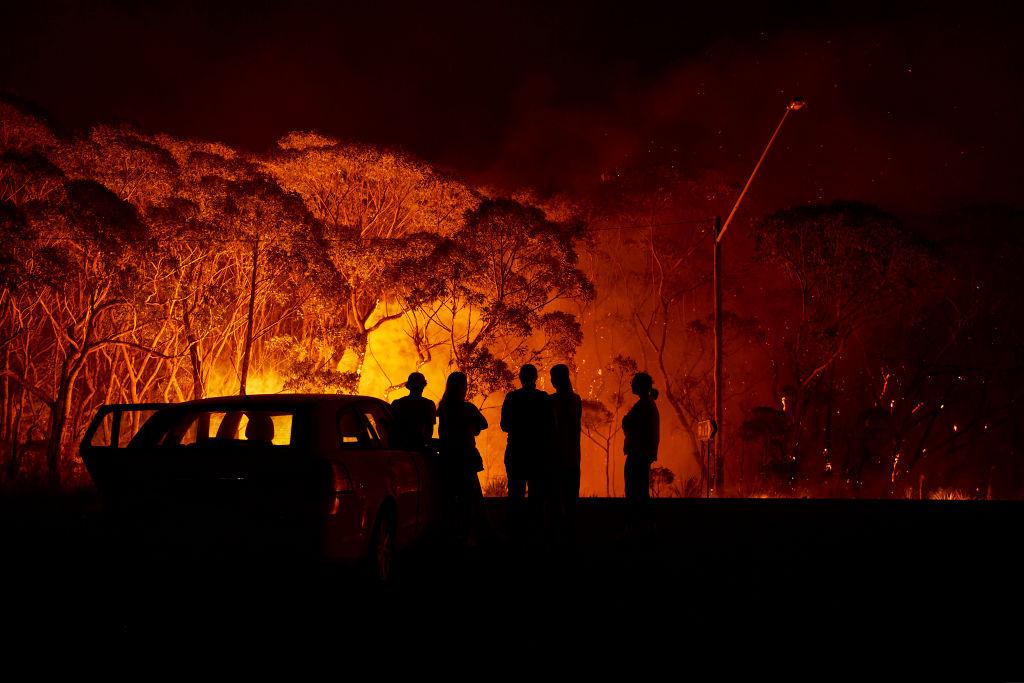Australia needs to talk about truly national preparedness
Posted By Gill Savage on August 2, 2023 @ 11:00

Australians live in complex and uncertain times. This strategic situation demands that governments leverage whole-of-nation capability, engage the wider community about national preparedness, and speak with, not at, stakeholders.
Communities in Australia and its region face a range of concurrent, consecutive and cascading economic and environmental challenges. The cost of living is rising and housing has become unaffordable for many. The looming El-Niño could trigger a fire season [1] as severe as the Black Summer bushfires of 2019–20, which affected 60% of Australians [2]. All of this comes before we consider Australia’s precarious relationships in the increasingly contested Indo-Pacific region.
In simple terms, preparedness is about having measures in place today that ensure Australia’s economy, society and communities are sustainable and resilient despite the complex multi-hazard environment we face. Underlying the need to be prepared is the willingness to make hard choices about investment.
Preparedness is not about prediction. Leaders shouldn’t get caught up in trying to define what precisely we need to prepare for and when. Instead, they need to be ready for compounding national disruptions of any kind, at any time. Given the interconnectedness of our modern world, integrating broad economic, social and environmental preparedness will be better for resilience than mapping out overly detailed contingencies.
At the heart of this is the need to adopt a more holistic view of preparedness and to challenge our assumptions—including the assumption that a lower level of economic and social amenity than urban Australia is ‘business as usual’ for regional and rural Australia.
Being prepared requires us to ensure that our supply chains are robust, and dependent on others only by explicit choice. It’s about ensuring that local infrastructure is fit for today’s purpose and designed for an uncertain future. A just-in-time approach to supply chains, infrastructure development and water has failed us. We need to integrate our food systems, road and sea transport, and trade to ensure they support future economic, social and environmental outcomes. Communities will need to be made more resilient and sustainable, along with being prepared for emergencies [3].
Governments are wrong if they assume that Australians, particularly in regional and remote areas, are not engaging in expansive conversations about preparedness. Understanding the threats we face isn’t confined to those with high-level security clearances. Consideration of the nation’s challenges shouldn’t start with highly classified conversations that, if we’re lucky, are translated into unclassified summaries. Otherwise, conversations between governments and the community will become filled with platitudes and generalisations. It’s time to start an unclassified, accessible discussion with a wider audience. Such an approach has a better chance of capturing imaginations and, in turn, meeting the nation’s needs.
Civil society, the private sector and academia also have a significant contribution to make. The Productivity Commission notes [4] that ‘government intervention may crowd out private investment in risk management—the net benefit of any intervention should outweigh the costs’. When creative thinking is needed, leaders must involve the whole nation in solving the problem.
A national conversation on preparedness would allow communities to coalesce around a strategic challenge. It would build cohesion rather than polarise and divide. It would build trust and confidence in the nation’s resilience.
Covid-19 showed us that there are many voices with divergent views, and that many in our community don’t accept being told what to do by governments. Public trust [5] in government, especially bureaucrats, remains low. We can’t assume that when the time comes, the nation at all levels in all regions will suddenly spring into action. Many already take on a disproportionate load. In the years prior to 2022, recovery funding was provided for 65 disasters in 332 unique local government areas [6] that impacted 61% of Australians. While communities may continue to be willing, they have little left to give.
Of course, we can’t anticipate or prepare for every eventuality; after all, there isn’t just one crisis to prepare for. However, by fully engaging the nation about national preparedness, leaders can help strengthen communities.
The absence of that national conversation will result in Australians continuing to be unprepared and surprised or, at worst, paralysed and divided. Australia can’t afford the devastating impact that would have on communities, businesses and families, especially when the most vulnerable are disproportionately impacted when things go wrong.
Article printed from The Strategist: https://aspistrategist.ru
URL to article: /australia-needs-to-talk-about-truly-national-preparedness/
URLs in this post:
[1] fire season: https://www.abc.net.au/news/2023-06-26/fire-season-warning-for-australia-this-winter/102524078?itm_campaign=newsapp
[2] affected 60% of Australians: /government-must-be-up-front-with-australians-about-climate-risks/
[3] emergencies: /different-thinking-for-a-resilient-australia/
[4] notes: https://www.pc.gov.au/inquiries/completed/supply-chains/report/supply-chains-overview.pdf
[5] trust: https://www.edelman.com/sites/g/files/aatuss191/files/2022-01/2022%20Edelman%20Trust%20Barometer%20FINAL_Jan25.pdf
[6] 65 disasters in 332 unique local government areas: https://parlinfo.aph.gov.au/parlInfo/search/display/display.w3p;query=Id%3A%22media%2Fpressrel%2F9245113%22;src1=sm1
Click here to print.